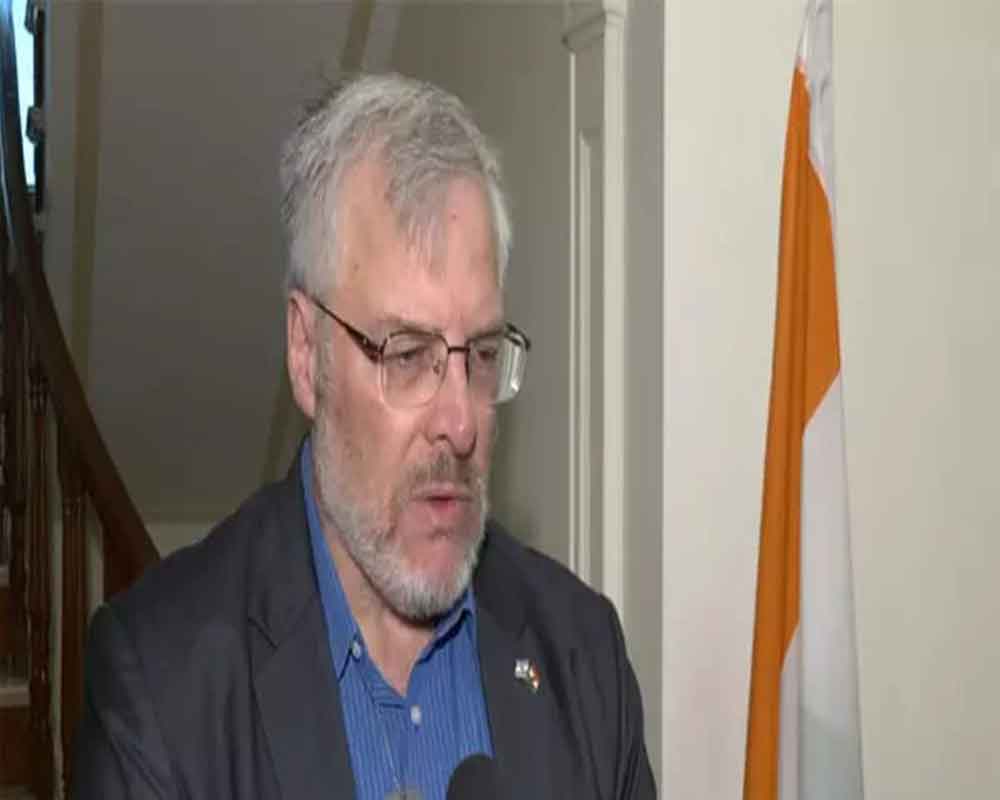Israel is "strong and resilient" and, if needed, it will "confront Iran" after the recent attack, the Israeli envoy here asserted on Monday and said India should play a role in bringing stability in the West Asia region.
In an interview to PTI at the Israeli Embassy here, the country's ambassador to India Naor Gilon said that Israeli defence forces with the support of the US and "other friends in the region" were able to "intercept 99 per cent" of the UAVs and missiles fired by Iranians.
However, there was "minor damage" suffered at Nevatim air base in the attack late Saturday, he said.
With Iran's attack on Israel triggering the spectre of a wider conflict in West Asia, India on Sunday said it is seriously concerned over the escalating hostilities between the two sides and called for an immediate halt to violence and return to the path of diplomacy.
External Affairs Minister S Jaishankar held separate telephonic conversations with his Iranian and Israeli counterparts and underlined the importance of avoiding escalation and exercising restraint.
Iran carried out the attack on Israel in response to a suspected Israeli strike on its consulate in Damascus on April 1 that killed seven Iranian Islamic Revolutionary Guards including a senior general.
Ambassador Gilon, in the interview, said India as a "very respected player in the international arena should put its influence and weight" in bringing things back to normal.
He was asked what role he expected from India in the present situation, given the telephonic conversations of Jaishankar with his counterparts in Israel and Iran.
"I think that we expect from India, as a friend, to be very strong in international community in making sure that Iran stops its destabilisation of West Asia.
"I think West Asia as a region is also very important for India because there are millions of Indians working in that region. Many business connections, strong ones with the UAE, Saudi Arabia, Qatar. And, I think, this is very important that India will be active as a part of the international community, in stopping Iran," he said.
Gilon said the Iranians had shot about "350 different UAVs to cruise missiles to surface to surface missiles, all in all about 60 tonnes of explosives", trying to overcome the Israeli defence system by shooting simultaneously.
"Thanks to the US and other friends in the region, and the huge capacity of our air defence and air force, we were able to intercept 99 per cent of these missiles and UAVs and luckily, no casualty. There was one young, seven-year-old girl, a Bedouin Muslin girl from the south of Israel, who was severely wounded, I hope she comes out of it," the Israeli envoy said.
Gilon alleged that the attack was a "clear continuation of the behaviour of Iran" for a very long time, bringing instability in West Asia.
Two days ago, they "changed mould and attacked Israel directly from the territory of Iran" and other territories and also proxies, he said.
"Iran cannot continue this behaviour, if we need we will confront Iran. It is not a choice of ours. We are merely the receiving side here, and we will probably find the right time and moment to retaliate or send back a message to Iran that this is unacceptable.
"We should send the retaliating message that this is unacceptable," the envoy said.
The Israel Defense Forces (IDF) in a post on X on Sunday night had said that the close cooperation between the US military and the IDF has led to the "formation of a strong coalition that proved itself last night in the face of Iran's aerial attack".
Asked what steps are being taken to foster a sense of security among citizens in Israel, Gilon said, "They got a boost of security feeling, from the huge success of the interception of Iranian attack".
Israel does not see "any difference" between an Israeli or a Thai or an Indian resident, "for us, all are the same", he said adding, "We are trying to protect all of them in the same way. There is no difference in Israeli and foreign citizens (in Israel), we treat them the same way".
At present, around 18,500 Indians are residing in Israel, according to official estimates.
The envoy also said, "If Iran goes forward with its nuclear programme, if it will be nuclear ... It will be devastating for the world, not only for Israel".
"So, one has to look at it from this viewpoint too. I think the international community should unite to put pressure on Iran," he added.
On the Iranian military seizing a cargo ship with Israeli links near the Strait of Hormuz on Saturday, he alleged that it was an act of "piracy" by Iran in stopping the ship in international waters.
In his phone conversation with Iranian counterpart Hossein Amir-Abdollahian, Jaishankar had also called for the release of 17 Indians onboard the Portuguese-flagged cargo vessel MSC Aries.
Asked if technology will decide the direction of conflicts in future, Gilon said, "We should say it's Israeli-developed technology, our very good pilots" who went out to counter the cruise missiles, adding, "Technology in future combats is going to be a big factor, a major factor".


























